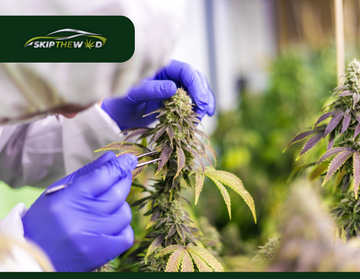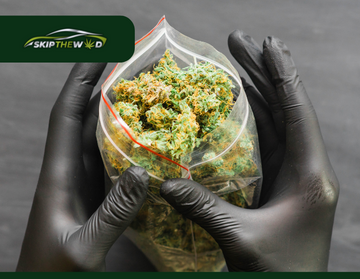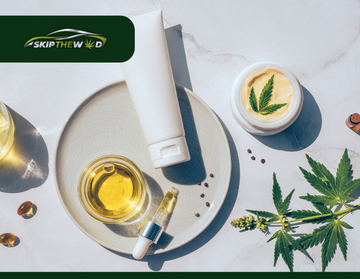Since the historic legalization of cannabis in Canada in 2018, the country has become a leading example of how regulated cannabis can coexist with public safety and health measures. However, understanding the legal framework surrounding cannabis use is essential for both residents and visitors. This article will explore the legality of cannabis in Canada, its regulations, restrictions, and the current state of cannabis consumption across provinces and territories.
A Brief History of Cannabis Legalization in Canada
Canada became the second country in the world, after Uruguay, to legalize recreational cannabis with the passing of the Cannabis Act (Bill C-45) on October 17, 2018. This legislation marked a significant shift from the previous criminalized status of cannabis and aimed to regulate and control its production, distribution, sale, and possession across the country. The primary goals of the Cannabis Act were to keep cannabis out of the hands of youth, reduce illicit activity, and ensure quality control within a legal market.
Cannabis Regulations in Canada: What the Law Says
While cannabis is legal for both medicinal and recreational use, it is not a free-for-all. The Cannabis Act outlines specific rules to ensure responsible use and protect public health. Here's a breakdown of the key regulations:
1. Legal Age to Buy and Consume Cannabis
Each province and territory in Canada has set its own legal age for cannabis consumption, although the federal minimum is 18. Most provinces and territories, however, have set the legal age at 19, aligning it with the legal drinking age. Here's a provincial breakdown of the legal age for cannabis consumption:
- Alberta: 18 years
- Quebec: 21 years
- All other provinces and territories: 19 years
It’s important to note that if you're caught selling or giving cannabis to minors, you could face serious legal penalties, including jail time.
2. Public Consumption
Public consumption laws vary widely across Canada, with some regions allowing cannabis use in designated areas, while others impose more strict regulations. Provinces such as British Columbia and Ontario allow cannabis smoking or vaping in the same areas as tobacco, except for places like schools and playgrounds. In contrast, provinces like Manitoba and Newfoundland and Labrador restrict consumption to private residences only.
Here’s an overview of public consumption laws in key provinces:
- Ontario: Cannabis can be smoked or vaped anywhere tobacco is permitted, except for near schools, playgrounds, and child care facilities.
- British Columbia: Public consumption is allowed where smoking is permitted, but not within 6 meters of public buildings or in vehicles.
- Alberta: Consumption is allowed on private property, with smoking and vaping in public areas subject to restrictions.
- Manitoba and Quebec: Cannabis use is restricted to private residences only, and public consumption is prohibited.
Before lighting up in public, it’s wise to familiarize yourself with local laws to avoid fines or penalties.
3. Possession Limits
The Cannabis Act outlines that individuals over the legal age can possess up to 30 grams of dried cannabis or its equivalent in public. This possession limit is strictly enforced, and being caught with more than this amount can result in criminal charges. For those who prefer non-dried forms of cannabis, the following amounts are considered equivalent to 30 grams of dried cannabis:
- 150 grams of fresh cannabis
- 450 grams of edible products
- 2,100 grams of liquid cannabis
- 7.5 grams of cannabis concentrates
- 30 cannabis plant seeds
These possession limits apply to recreational users. Those with medical cannabis prescriptions may possess larger amounts, depending on their doctor’s recommendations.
4. Driving and Cannabis
Driving under the influence of cannabis is illegal and considered just as dangerous as driving under the influence of alcohol. Canada has strict impaired driving laws for cannabis. Federal penalties for driving while impaired by cannabis include fines, jail time, and the potential suspension of driving privileges. Testing for cannabis impairment can be done via roadside oral fluid drug screens, and blood tests are used to measure THC (tetrahydrocannabinol) levels.
The legal limit for THC in the bloodstream while driving is set at:
- 2 nanograms (ng) per milliliter (ml) of blood for a low-level THC offense
- 5 ng/ml for a more serious offense
- Combined alcohol and cannabis (50 mg alcohol per 100 ml blood with 2.5 ng/ml THC) counts as a high-level offense
Driving while impaired by cannabis can lead to fines, license suspensions, and even imprisonment, especially for repeat offenders.
5. Cultivating Cannabis at Home
Canadian residents of legal age are permitted to grow up to four cannabis plants per household for personal use. However, some provinces have imposed additional restrictions on home cultivation. For example, in Quebec and Manitoba, growing cannabis at home is prohibited, even though recreational cannabis use is legal.
The plants must also be grown from seeds or clones purchased from licensed cannabis retailers. Selling or distributing home-grown cannabis outside the legal market is illegal and can result in significant penalties.
Provincial and Territorial Cannabis Laws
While the Cannabis Act provides the federal framework for legalization, each province and territory can adjust rules to fit their specific needs. This has led to variations in how cannabis is sold and consumed across Canada.
- British Columbia: Offers a mix of government-run and private retail cannabis stores. Public consumption is generally allowed where smoking is permitted, with specific restrictions.
- Ontario: Initially, cannabis was sold only online through the Ontario Cannabis Store, but now private retail stores are open. Public consumption is regulated similarly to tobacco.
- Alberta: Retail cannabis stores are privately owned, with consumption allowed on private property. There are public smoking and vaping restrictions in place.
- Quebec: Cannabis is sold through government-run stores, and the legal age for consumption is 21. Public consumption is prohibited, and home cultivation is not allowed.
- Manitoba: Cannabis retail stores are privately operated, and public consumption is banned, with home cultivation prohibited.
Understanding the local rules is crucial for ensuring compliance with the law.
Penalties for Breaking Cannabis Laws
Despite the legal status of cannabis in Canada, failing to adhere to federal or provincial rules can result in legal consequences. Penalties vary based on the severity of the offense and can range from fines to imprisonment. Some common violations include:
- Possession of more than the legal limit (30 grams in public)
- Selling cannabis to minors
- Growing more than four plants per household
- Driving under the influence of cannabis
- Smoking in prohibited public spaces
It’s important to be aware of these penalties and understand the responsibilities that come with cannabis use in Canada.
Medical Cannabis in Canada
Medical cannabis has been legal in Canada since 2001, with patients accessing it through the Access to Cannabis for Medical Purposes Regulations (ACMPR). While the legalization of recreational cannabis has simplified access for many, those using cannabis for medical reasons still have a separate legal pathway. Medical users can possess more than the recreational limit and have greater flexibility regarding cultivation.
Individuals requiring cannabis for medical purposes must obtain authorization from a healthcare practitioner and can purchase products through licensed producers.
Conclusion
Yes, cannabis is legal in Canada, but its use is heavily regulated to ensure public safety and prevent misuse. Each province and territory has its own unique set of laws concerning public consumption, possession limits, and where cannabis can be purchased. Whether you are a resident or a visitor, it’s essential to understand these regulations to enjoy cannabis responsibly and legally.
As Canada continues to refine its approach to cannabis regulation, staying informed about the latest laws will help you stay compliant and avoid any unnecessary legal issues. For a safer, more enjoyable experience, ensure you’re purchasing cannabis from licensed retailers and adhering to local laws.
Skip the Weed offers high-quality cannabis products and proudly serves the entire Winnipeg area, including St. Norbert, LaSalle, and St. Adolph. Enjoy vehicle delivery for just $9 or choose mail order for $20. To place your order, call us at 204-294-6583 or you can visit our website at Cannabis Delivery Winnipeg | Skip the Weed









